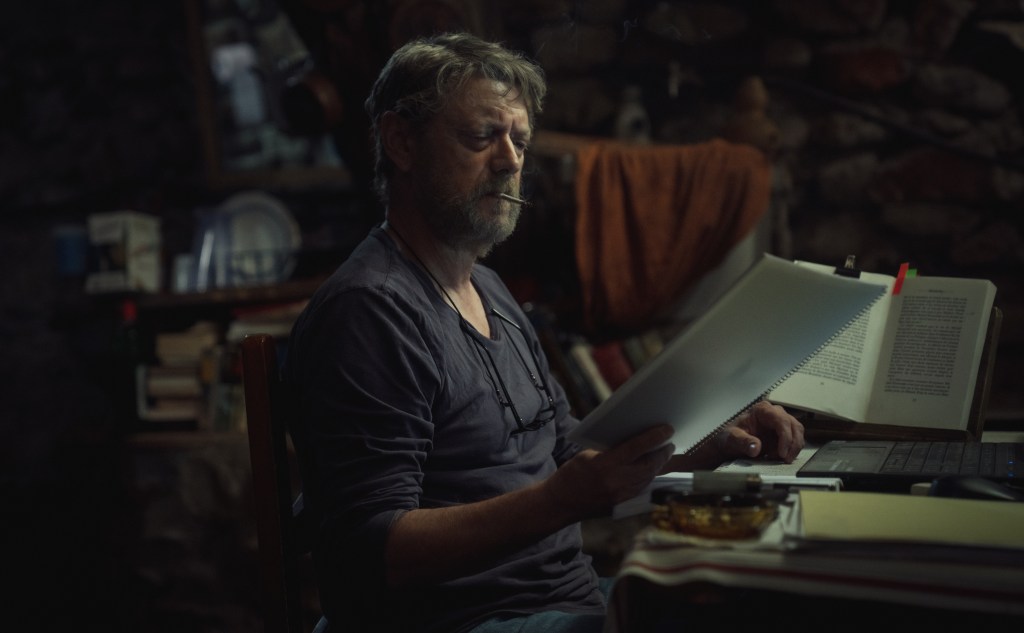“Long-awaited” isn’t quite the term for Victor Erice’s “Close Your Eyes,” a film that dedicated admirers of the Spanish master may have hoped for, but didn’t dare expect. Instead, Erice’s first feature in 31 years — and only his fourth overall — arrives as something between a desert oasis and a mirage: a shimmery, nourishing culmination of ideas and ellipses in a career so elusive as to have taken on a mythic quality, to the point that his latest feels almost dreamed into being. But “Close Your Eyes” proves a disarmingly simple, emotionally direct film once its out-of-time aura settles. A story itself of disappearance and reemergence, and the potential of cinema to bridge past and present as if decades were days, it’s potent and poignant enough to reach newcomers to Erice’s work, even as fans pore over its self-reflexive details.
Having premiered at Cannes (where its surprising out-of-competition slot prompted grumbles from critics, and a piqued no-show from Erice himself), “Close Your Eyes” has since been warmly embraced on the festival circuit, though a U.S. distributor has yet to step forward. It would be a shame if theatrical prospects were curbed for a film that works slowly toward a deeply stirring testament to the consciousness-shaping power of big-screen images — just as Erice’s immortal debut “The Spirit of the Beehive” did half a century ago, with its tale of a young girl’s worldview altered and haunted by a dusty projection of “Frankenstein.” That the same wide-eyed tot, Ana Torrent, plays a crucial, more jaded role in “Close Your Eyes” is just one point of bittersweet reflection here.
We open, somewhat unexpectedly, on a grandiose French country estate in 1947, where an aging refugee from Franco’s Spain summons the compatriot he’s hired to track down his long-lost daughter in Shanghai. The atmosphere is one of richly faded glory, painted in shades of brandy-ish velvet — yet just as we’re getting involved in this plight, building toward a bittersweet reveal, we lurch forward in time to 2012, and the tactile brocade texture of Valentín Álvarez’s 16mm camerawork gives way to a grayer digital smoothness. We’re not the only ones left in limbo: What we’ve been watching turns out to be a single reel from an unfinished film, “The Farewell Gaze,” shot in 1990 by celebrated director, author and fictitious Erice analog Miguel Garay (Manolo Soro).
The film was abandoned in eerie circumstances, its leading man, Miguel’s best friend Julio Arenas (José Coronado), having disappeared mid-shoot, never to be found. Two decades later, Miguel — whose film career has since lain dormant — is contacted by the producers of an lurid investigative TV show who are reopening the mystery; in need of the money, he agrees to act as a talking head. Yet the invitation prompts the now reclusive artist to begin his own wandering, shuffling probe into his past. It’s a languid journey through contemporary Madrid that takes in visits to Miguel’s former film editor Max (Mario Pardo), now a celluloid archivist living amid fragile towers of 35mm reels; fado singer Marta (Helena Miquel), a former lover of both Miguel and Julio; and Ana (Torrent), Julio’s now middle-aged daughter, who may work as a museum tour guide but is less inclined than Miguel to revisit personal history.
These ramblings and ruminations fill the bulk of this near three-hour film’s somber, even pessimistic first half, in which Miguel’s evaluation of his failed relationships and dimming artistic legacy is mapped onto a wider elegy for cinema’s vanishing impact. Miguel and Max mourn the tangible qualities of the medium, but also the ways in which it validated them as men and storytellers. Erice’s urgent appreciation of film’s capacity to capture fleeting moments of light, youth and beauty is as pronounced here as it was in his last feature, 1992’s “The Quince Tree Sun,” which centered on a painter’s increasingly frenzied attempts to do the same on canvas.
Thirty years on, that celebration is darkened by concerns of impermanence, hanging over both the waning director and his increasingly little-seen oeuvre. Some Erice acolytes may be disappointed by the flatness of the imagery in his latest, at least relative to the glimmering quality of his previous work — yet even that feels imbued with meaning, a concession to new but not necessarily improved forms.
But gradually, in a second half of startling narrative developments and a brightened, widened outlook, “Close Your Eyes” rewards viewers’ patience and faith, not just in the filmmaker but in film itself, while the arc of Miguel’s life comes to seem less a retreat from greatness than a winnowing to essential pleasures. A wonderful homecoming passage set in the Almerian beach community where Miguel has settled, with trusty dog and good-humored neighbors, is alive to the joys of companionship and conversation. A lusty dinner-table singalong to Ricky Nelson and Dean Martin’s “My Rifle, My Pony and Me,” from Howard Hawks’s “Rio Bravo,” is peculiarly moving, a demonstration of how film can endure less obviously in our everyday lives.
A finale of connections revived and renegotiated brings us full circle, with Miguel’s film immaculately projected in a long-languishing movie theater to a small but emotionally invested audience — their discoveries amid the lost images belying Max’s earlier statement that “miracles haven’t existed in the movies since Dreyer died.” In Erice’s aching, consummate return, cinema is life, but there’s life beyond it too.
Read More About:
Source: Read Full Article



